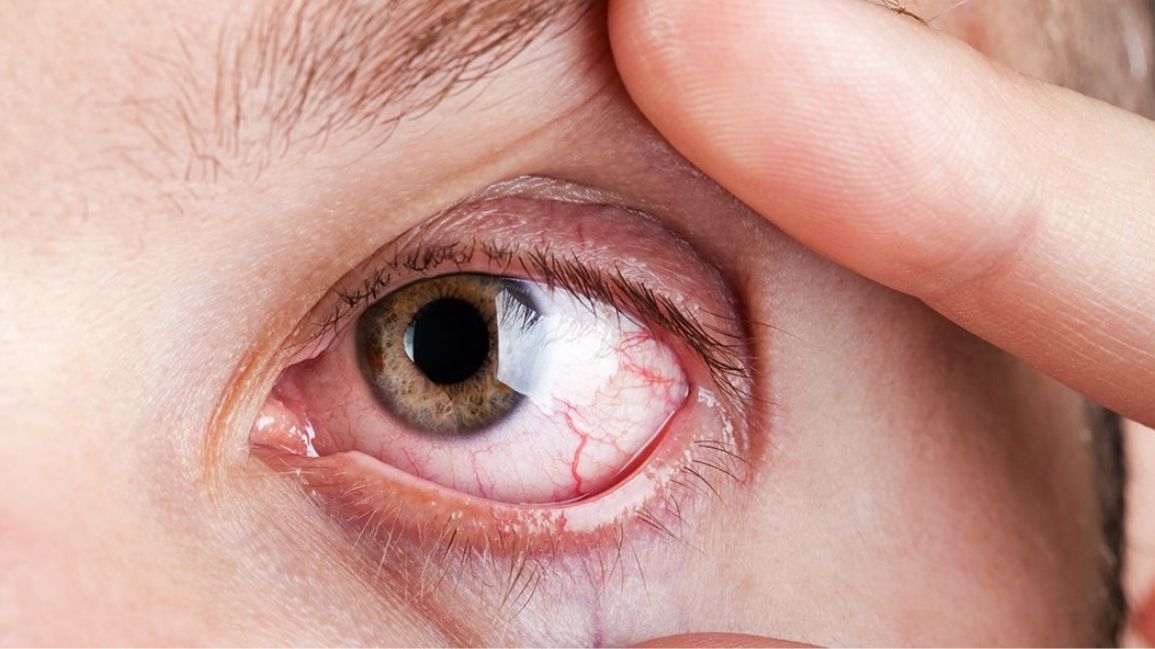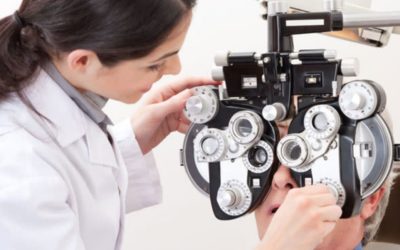What Is Macular Pucker?
Among the retinal conditions we treat here at American Eye Associates is a condition called macular pucker. It goes by many other names, including epiretinal membrane, preretinal membrane, cellophane maculopathy, retina wrinkle, surface wrinkling retinopathy, premacular fibrosis, and internal limiting membrane disease.
What is this condition? How can it be treated?
Macular Pucker
The macula is the area of the retina that provides the high-acuity vision necessary for reading, recognizing faces, and other daily activities. When the macula is not functional, the person will still be able to see light and colors, but vision will be very blurry and will not permit many activities of daily living. An epiretinal membrane, or macular pucker, occurs when there is a thickening, or the formation of scar tissue, over the macula.
Most people with macular pucker have only mild symptoms. They may notice some visual distortion; most commonly, lines that should be straight (for example, a door frame) appear to be wavy or crooked. Other types of visual distortion may also occur. For most people, the changes in vision are not enough to interfere significantly with the activities of daily living; they are simply a nuisance. However, more severe visual distortion may occur for some patients, and affect the person's functioning in daily life.
What Causes Macular Pucker?
A variety of conditions can cause macular pucker, including:
- Vitreous detachment. As people age, the vitreous humor, which is the jelly-like substance that fills the eye, gradually decreases in size. This causes it to pull away from the retina, which can cause microscopic damage to the retina and cause scar tissue to form. In this sense, aging is the most common cause of macular pucker.
- Diabetic or hypertensive retinopathy. When blood sugars or blood pressure are chronically high, this causes damage to the retina, which may result in the formation of an epiretinal membrane.
- Retinal tear or detachment. Retinal detachment occurs when the retina separates from the layer below it. Because the blood supply to the retina comes from this layer, the retina is affected when it pulls away from that. The damage to the retina can result in the formation of scar tissue on the macula.
- Eye surgery or trauma. If these cause the formation of scar tissue, it may occur over the macula and cause macular pucker.
- Uveitis, or inflammation of the eye. Inflammation can lead to scarring; again, it can occur over the macula and lead to macular pucker.
Can Macular Pucker Be Treated?
Because macular pucker usually causes only mild symptoms, many patients do not require treatment beyond continuing to monitor the situation. For some patients, the scar tissue that causes macular pucker will separate from the retina, and the condition will resolve on its own. Even when this doesn't happen, the visual distortion caused by this condition is often not severe enough to require treatment.
However, for patients who are experiencing more severe symptoms from the condition, then treatment involves careful removal of the scar tissue from the macula. A procedure called a vitrectomy is performed, in which the vitreous (a gel that fills the eye) is removed. This allows the eye surgeon to access the macula in order to remove the scar tissue. The vitreous is replaced with saline (salt water); the eye continues to function normally when filled with saline, as there is actually no need for the vitreous in adulthood.
Macular Pucker And Vitrectomy San Diego
If you're experiencing macular pucker or any other retinal condition, and you live in the greater San Diego area, our team of retinal experts is ready to offer our expertise. Vision is our dominant sense and is very important to functioning in the world, so it's crucial to ensure that an expert advises you on the best care for your eyes. Please contact our office to make an appointment.





0 Comments